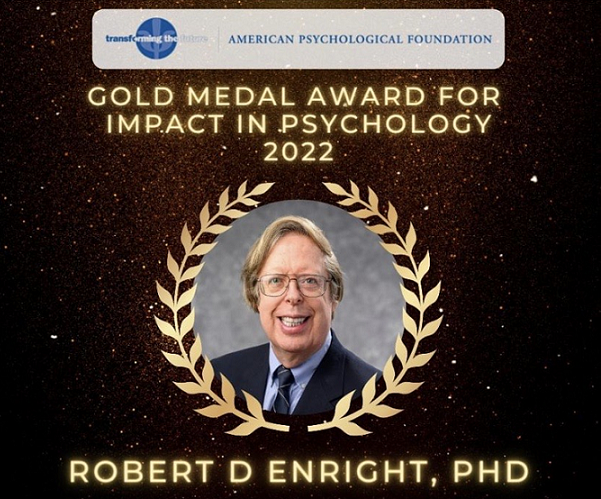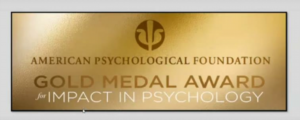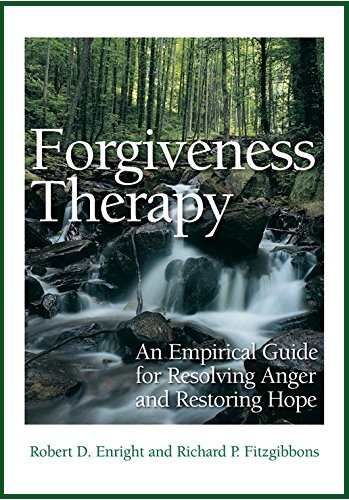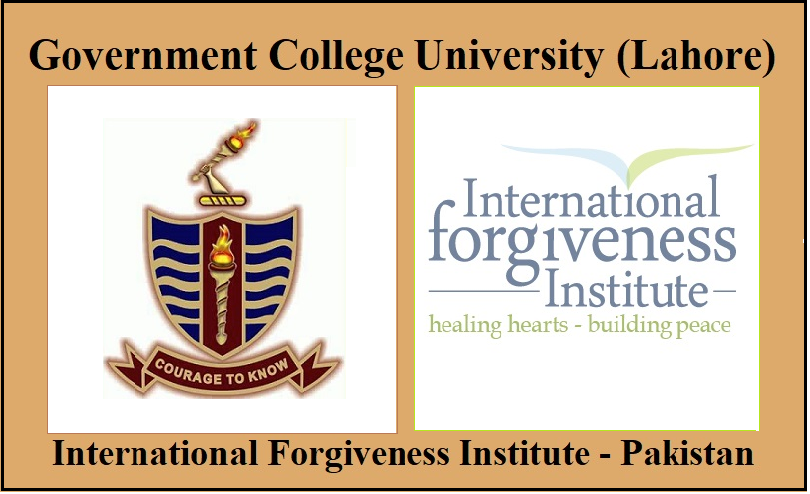Tagged: “Children”
So, Then, What Has Changed in These Past 10 Years?
I re-read one of our posts here at the International Forgiveness Institute. It was dated February 29, 2012. What surprised me is this: It was as if I were reading a contemporary news item from 2022.
As you read the 10-year-old essay below, consider asking yourself this: Has anything changed for forgiveness within societies in that timespan? What must we do so that in 2032 the news is not a repetition of the past 20 years?
Here is that essay from 2012:
Peter Maurin of the Catholic Worker Movement is alleged to have said that a good society is one in which it is easy to be good. I write this blog post today as I reflect on some recent news stories (posted in our Forgiveness News section of this website). We have the shooting of innocent teenagers in Ohio and we have the murder of a 4-year-old. Anger can sometimes be deadly for the other person who just happens to be in the angry one’s way.
I wonder what those outcomes would have been had those with the weapons been bathed in forgiveness education from age 5 though 18. I wonder what those outcomes would have been had the weapon-carriers, as they grew up, practiced forgiveness in the home. I wonder.
The wounds in the world are deep and everlasting, it seems. What we do here at the International Forgiveness Institute, Inc. (helping people if they so choose to learn to forgive and then practice forgiveness) will never be out of date. Yet, my big worry (yes, it is a big worry) is this: Will there be sufficient laborers in the forgiveness vineyard to bring the virtue of forgiveness to children so that they can become fortified against the grave injustices that come to too many too often as adults?
I worry about those 6-year-olds, sitting now in classrooms, learning their mandated ABCs, without also learning the ABCs of how to deal with injustice. You see, society is not emphasizing forgiveness. We are not being taught forgiveness on a regular basis. We are in a society where it is not easy to be a good forgiver. And so too many of those who are bullied in school do not even think to forgive those who perpetrate the bullying. In Ohio this week, one bullied student’s response was a gun and then murder.
So much pain in the world and yet too many societies do not have the vision and the resources to bring forgiveness education far and wide. Question for those who are listening: The next time a city wishes to build a $250 million complex for athletics or entertainment or whatever, who has the persuasive skills and accompanying wisdom and courage to ask that one half of one percent of that be siphoned off to forgiveness education? If we could go back and ask the deceased students in Ohio or the innocent 4-year-old what is the higher priority….what do you think they would say to us?
Society, what do you think?
Robert
Perseverance versus Novelty in Establishing Forgiveness Programs
What is one of the biggest impediments to forgiveness interventions in schools, homes, and organizations?
Having implemented research-based and service programs of forgiveness since about 1990, I can say that one of the most significant challenges is the quest for novelty, for that new, cutting edge activity that fills people with a short-term rush of enthusiasm. When novelty becomes an end in and of itself, it is then that it becomes an impediment to the slow and steady build up of the moral virtue of forgiveness in hearts, homes, and communities. This is the case because the newly popular can extinguish that which has been there for years.
The philosopher Blaise Pascal emphasized that one of the major distractions to growing as persons is what he called diversion. In his book, Pensees, Pascal spends a lot of time discussing this issue of diversion, or being so busy with whatever is preoccupying the person at present that there is no time to contemplate what is important in life.
Consider this quotation from #171 in the Pensees: “The only thing which consoles us for our miseries is diversion, and yet this is the greatest of our miseries. For it is this which principally hinders us from reflecting upon ourselves and which makes us insensibly ruin ourselves. Without this we should be in a state of weariness, and this weariness would spur us to seek a more solid means of escaping from it. But diversion amuses us, and leads us unconsciously to death.”
So, even if a family or an organization or even a community discovers the beauty of forgiveness and implements it, then the challenge is this: How do we keep forgiveness present to us instead of latching on to the newest fad, the newest game, the newest social cause that will fade when the next newest-whatever emerges in about a year or two?
This idea of persevering in forgiveness is vital according to Aristotle, who reminds us that it takes much time and effort to grow in any of the moral virtues. We start with questions about what it even means to forgive. As we work out our misconceptions (it is not excusing or automatically reconciling with someone who is harmful), we then begin to practice forgiveness, applying it to those challenging situations in which we are treated unjustly. This can occur in schools as well. Yet, once the new mathematics textbook appears, or the new anti-bullying approach, or the new field trip guidelines, forgiveness as a part of schooling can quietly fade away, as a rowboat does, from the dock, as the moorings are slowing and imperceptibly loosened from the wooden piling. Forgiveness can slowly drift out to sea without anyone even noticing.
The first step in persevering with forgiveness once it is planted in a group is to realize that it could very easily fade away. This kind of consciousness must not be lost. As a second strategy, we all need to take a lesson from Pascal and know that diversion is not necessarily our friend, especially when it comes to growing courageously in the moral virtues and then persevering in practicing them.
Long live forgiveness, even in the face of the temptation of adding more and more diversion into our lives.
Robert
I am concerned about learning through observation. If children see parents arguing frequently, sometimes intensively, will these children, in the future, engage in bullying others in school or even be a contentious partner in adulthood?
This depends on what the child, who now is an adolescent or an adult, has learned from what was observed about the parents. It is possible that the person might gain wisdom from the parents’ fighting and realize that such a pattern is not healthy. Thus, the person may deliberately commit to not following the parents’ behavior. In contrast, if the person does not reflect on the potentially destructive pattern, then, yes, the person may grow up to show bullying behaviors in school and to repeat the pattern of a conflictual relationship with a partner. In other words, insight along with a commitment to not imitate the conflictual behavior might spare the person from repeating the parents’ behavioral pattern.
My daughter recently divorced her husband. She wants nothing to do right now with forgiving him. On the other hand, I am interested in forgiving him for how he treated my daughter. My question for you is this: Can I forgive him or would I be disloyal to my daughter who does not want to forgive?
You are free to choose forgiveness in this case. Even though your daughter’s ex-spouse did not hurt you directly, he did hurt you in a secondary sense in that he hurt your loved one. Forgiving in this context is appropriate. You are not being disloyal to your daughter if you choose to forgive to rid yourself of resentment. You need not, then, go to your daughter and proclaim your forgiveness and then pressure her now to do the same. You can forgive without discussing this with your daughter. If and when she is ready to forgive, then you can share your insights about the forgiveness process with her.
“Forgiveness Pioneer” Wins Inaugural Gold Medal Award for Impact in Psychology
The scientific application of forgiveness, forgiveness education, and forgiveness therapy is being singled out for its “game-changing impact on the field of psychology” by the country’s largest and oldest organization of doctoral-level psychologists.
The American Psychological Foundation (APF), the grant-making arm of the American Psychological Association (APA), has just announced the winner of its first-ever Gold Medal Award for Impact in Psychology—Dr. Robert Enright, a professor of Educational Psychology at the University of Wisconsin-Madison, and founder of the International Forgiveness Institute.
Classified as one of psychology’s highest honors, the award “recognizes a psychologist whose work has had a game-changing impact on the field of psychology,” according to APF board president Terence M. Keane, PhD. He added that the new award acknowledges “a psychologist’s body of work that has been impactful, innovative, and transformational.”
Prior to this year, the award was called the Gold Medal Award for Life Achievement and it has been bestowed on exceptional psychological innovators by the APF for the past 65 years. Previous winners have included B. F. Skinner (the 1971 winner who developed behavior analysis), Harry Harlow (the 1973 winner and a UW-Madison psychologist like Dr. Enright), Rollo May (1987), Mary Ainsworth (1998), and Albert Bandura (2006).
“For the APA and the APF to position forgiveness alongside the creative achievements of those giants in the field of psychology is truly a profound pronouncement,” Dr. Enright said after learning of his recognition.
 As a grant making foundation, the APF helps fund psychologists and students worldwide who are using psychology to address major issues and improve lives. The APA has more than 133,000 members—doctoral-level researchers, educators, clinicians, consultants, and students (associate members). Combined, the two organizations have more than 500 staff members who focus on providing services to psychologists like Dr. Enright who have dedicated their lives to improving the mental health and welfare of others.
As a grant making foundation, the APF helps fund psychologists and students worldwide who are using psychology to address major issues and improve lives. The APA has more than 133,000 members—doctoral-level researchers, educators, clinicians, consultants, and students (associate members). Combined, the two organizations have more than 500 staff members who focus on providing services to psychologists like Dr. Enright who have dedicated their lives to improving the mental health and welfare of others.
Dr. Enright, a licensed psychologist, has devoted 37 years to the scientific study of forgiveness. As the unquestioned pioneer in the field of forgiveness, Dr. Enright published the first social scientific journal article on person-to-person forgiveness and the first cross-cultural studies of interpersonal forgiveness. He also pioneered forgiveness therapy and developed an early intervention to promote forgiveness–the 20-step “Process Model of Forgiving.”
The Enright Forgiveness Inventory (EFI), an objective measure of the degree to which research participants forgive another who has been unjust and hurtful toward them, is now used by researchers around the world. The Enright Forgiveness Inventory for Children (EFI-C), the Enright Self-Forgiveness Inventory (ESF-I), and the Enright Group Forgiveness Inventory (EGFI) have all become standard research tools known simply by their abbreviations.
Dr. Enright also pioneered the use of forgiveness therapy in clinical practice by developing  interventions that gained critical acclaim with the APA’s publishing in 2015 of Forgiveness Therapy, an instructional manual for clinicians written by Dr. Enright and psychiatrist Richard Fitzgibbons, MD. The two authors were selected in 2019 as recipients of the prestigious Expanded Reason Award presented by the University Francisco de Vitoria (Madrid, Spain) in collaboration with the Vatican Foundation Joseph Ratzinger/Benedict XVI (Rome, Italy) “to recognize and encourage innovation in scientific research and academic programs.”
interventions that gained critical acclaim with the APA’s publishing in 2015 of Forgiveness Therapy, an instructional manual for clinicians written by Dr. Enright and psychiatrist Richard Fitzgibbons, MD. The two authors were selected in 2019 as recipients of the prestigious Expanded Reason Award presented by the University Francisco de Vitoria (Madrid, Spain) in collaboration with the Vatican Foundation Joseph Ratzinger/Benedict XVI (Rome, Italy) “to recognize and encourage innovation in scientific research and academic programs.”
Dr. Enright’s ambitious approach to forgiveness education included the development of 14 Forgiveness Education Curriculum Guides for students in grades Pre-K through 12th. Through stories, children learn about the five moral qualities most important to forgiving another person–inherent worth, moral love, kindness, respect and generosity—and eventually, how they themselves can become a forgiving person.
A just-completed meta-analysis by University of Wisconsin-Madison researchers involving more than 1,500 students in 10 countries shows that students enrolled in Forgiveness Education Programs demonstrated reduced anger and increased forgiveness toward those who have hurt them. Those forgiveness guide lesson plans, distributed through the IFI, have been requested by educators in more than 30 countries and contentious regions around the world.
 Adding to its forgiveness education agreements with many of those countries, the IFI’s newest Branch Office is IFI-Pakistan, a partnership with the Government College University Lahore, Lahore, Pakistan–the first in that country and in Southern Asia. In Greece the IFI has trained more than 600 grade school instructors in the past 8 years who are now teaching forgiveness to more than 6,000 Greek students.
Adding to its forgiveness education agreements with many of those countries, the IFI’s newest Branch Office is IFI-Pakistan, a partnership with the Government College University Lahore, Lahore, Pakistan–the first in that country and in Southern Asia. In Greece the IFI has trained more than 600 grade school instructors in the past 8 years who are now teaching forgiveness to more than 6,000 Greek students.
“Although the virtue of forgiveness has made astronomical strides in the past few decades, we are just on the edge of what it can offer us for the future,” Dr. Enright says. “Forgiveness must have a seat at the peace-keeping and peace-making table.”
According to Dr. Enright, his body of work has clearly demonstrated that as people forgive, they become less angry, less depressed, less anxious, and more hopeful of their future. In other words, people become more peaceful within themselves, making the possibility of peace with others more likely.
Dr. Enright has outlined his grass-roots approach to peace through a variety of forums beginning with his 2010 article “Forgiveness Education as a Path to Peace,” his 2014 address to the United Nations Population Fund “Forgiveness as a Peace Tool,” and his recent series of 3 essays on peace published on the Psychology Today digital website.
In 2015, Dr. Enright accompanied Eva Mozes Kor, a survivor of the Holocaust, on a series of US radio interviews to promote peace through forgiveness. His peace initiatives have earned him peace educator awards including being named a Paul Harris Fellow by Rotary International in 2016.
Time magazine has called Dr. Enright “the forgiveness trailblazer.” The Los Angeles Times said Dr. Enright is “the guru of what many are calling a new science of forgiveness.” The Christian Science Monitor called Dr. Enright “the father of forgiveness research.”
As the recipient of the 2022 Gold Medal Award for Impact in Psychology, Dr. Enright will be honored during APA 2022–the annual American Psychological Association convention on August 5th in Minneapolis, MN. He will receive a gold medal plaque and a modest honorarium during the APF Friends of the Foundation reception.



